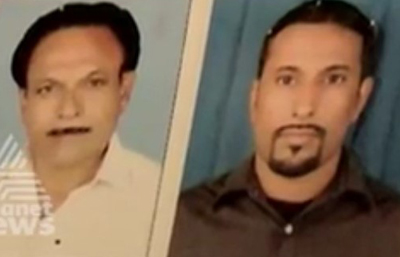Chengannur, May 30: In a gruesome incident of patricide over property dispute, a 36-year-old IT professional has allegedly shot dead his NRI father, cut his body into pieces and dumped them at various locations here.
 Police said Sherin John, working with a company in IT hub Technopark, was arrested after he confessed that he had killed his father Joy V John (68) last week.
Police said Sherin John, working with a company in IT hub Technopark, was arrested after he confessed that he had killed his father Joy V John (68) last week.
John was living in US for the last three decades and visited his ancestral home near here when he was murdered, police said, adding property dispute led to the crime.
Based on Sherin's statement, police carried out a search in various places and recovered a portion of limb, head and some other body parts, believed to be that of Joy.
"The recovered body parts will be sent for DNA testing and other scientific analysis.
"As per our preliminary investigation, property dispute between the father and son had led to the murder," Alappuzha District police chief B Asok Kumar told PTI.
Joy had gone missing since last Wednesday after he had gone out with Sherin to repair an air-conditioner.
As her husband and son did not return, Joy's wife Mariamma lodged a missing complaint with the police.
During interrogation, Sherin confessed to committing the crime, police said, adding he had been booked for IPC offences including murder and destruction of evidences.




Comments
dont know what to say.............no comments.........God save the elders from this new generations mentality.................
Add new comment